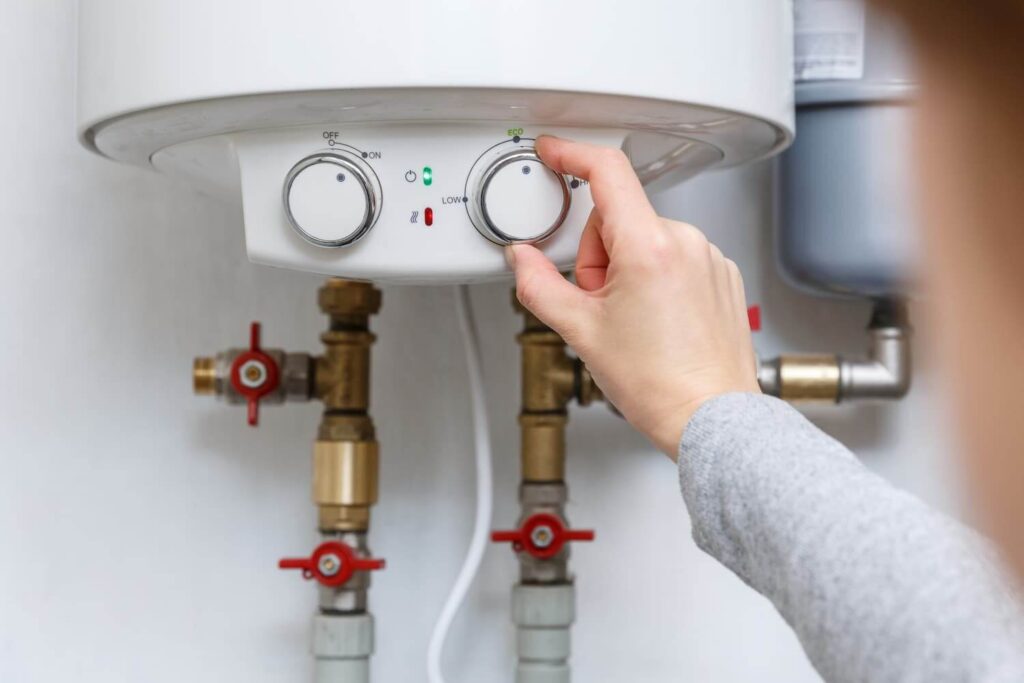A functioning water heater is one of the unsung heroes of any home. From hot showers to clean dishes, it’s an essential appliance that quietly supports your daily routine. But like all home systems, water heaters don’t last forever. Replacing your water heater at the right time can save you from cold water surprises and costly emergency repairs. So, how do you know when it’s time to replace your water heater? Here’s a simple breakdown to help you decide.
1. Understand the Lifespan of Your Water Heater
The first step in knowing when to replace your water heater is understanding its typical lifespan:
- Traditional Tank Water Heaters: These usually last between 8 to 12 years with proper maintenance.
- Tankless Water Heaters: These energy-efficient models have a longer lifespan, often lasting 20 years or more.
If your water heater is nearing the end of its expected life, it’s the perfect time to explore your options and buy a new water heater that suits your needs. Keep in mind that the actual lifespan can vary depending on factors like water quality, maintenance, and usage.

2. Look for Warning Signs
Your water heater often gives clues when it’s time for a replacement. Here are some common signs to watch out for:
- Age: If your unit is older than its expected lifespan, replacement is likely a good idea, even if it’s still working.
- Rusty or Discolored Water: This could indicate rust inside the tank, which often signals the tank is deteriorating.
- Leaking Water: Puddles around the base of your water heater are a clear sign of trouble.
- Strange Noises: Rumbling or banging sounds can mean sediment build-up, which can damage the tank over time.
- Inconsistent Hot Water: If you’re running out of hot water faster than usual, the unit may no longer be performing efficiently.
- Rising Energy Bills: Older water heaters lose efficiency, leading to higher utility costs.
3. Maintenance: The Key to a Longer Lifespan
Proper water heater maintenance is essential to extending the life of your unit and avoiding unexpected issues. Here are some maintenance tips to keep your unit in good shape:
- Flush the Tank Annually: Over time, sediment can build up in the tank, reducing efficiency and causing damage. Flushing the tank helps prevent this. Check out our Step-by-Step Guide to Draining a Hot Water Tank.
- Inspect the Anode Rod: The anode rod protects the tank from corrosion. Replacing it every few years can significantly extend the life of your water heater.
- Check for Leaks: Regularly inspect your water heater for any signs of leaks or rust.
- Adjust the Temperature: Keeping the thermostat set to 120°F can prevent overheating and reduce wear on the unit.
- Schedule Professional Inspections: A plumber can catch potential issues before they become major problems.
Consistent maintenance can delay the need for replacement and ensure your water heater operates efficiently throughout its lifespan.

4. Repair vs. Replacement: Making the Right Choice
If your water heater shows signs of trouble, it’s important to weigh your repair options before deciding to replace it. Here’s what to consider:
- Minor Repairs: Issues like a faulty thermostat, a broken heating element, or a leaking valve can often be repaired without replacing the entire unit.
- Cost-Effectiveness: If the repair costs are less than half the price of a new water heater, it may be worth fixing.
- Replacement Benefits: For older units or those requiring frequent repairs, replacement is often the more economical and reliable solution in the long run.
When in doubt, consult an HVAC technician specializing in water heater repair. The experts at HVAC Near Me can help assess whether repair or replacement is the better option based on your water heater’s condition and age.
5. Be Proactive About Replacement
Replacing your water heater before it fails completely can save you a lot of hassle. A sudden failure can leave you without hot water and may even cause water damage if the tank leaks. Here’s how to plan ahead:
- Schedule Regular Inspections: Have a professional plumber inspect your water heater annually to check for potential issues.
- Budget for Replacement: Knowing the average lifespan of your unit allows you to plan financially for its replacement.
- Research New Models: Modern water heaters are more energy-efficient and come with advanced features. Researching options ahead of time can help you choose the best fit for your home.
6. Choose the Right Replacement
When it’s time to replace your water heater, consider your household’s needs:
- Tank vs. Tankless: Tankless water heaters are more expensive upfront but can save you money in the long run due to their energy efficiency and longer lifespan.
- Size: Ensure the new unit has enough capacity to meet your household’s hot water demand.
- Energy Efficiency: Look for models with a high Energy Factor (EF) rating to reduce utility bills.
Final Thoughts
Knowing when to replace your water heater doesn’t have to be a mystery. By understanding its lifespan, recognizing warning signs, and planning ahead, you can avoid unexpected breakdowns and enjoy consistent hot water.
Regular maintenance can help extend the life of your unit, and understanding your repair options can save you money in the short term. If you’re unsure whether it’s time to replace your unit, consult a professional plumber to assess your current system and recommend the best course of action. Remember, proactive replacement can save you time, money, and stress in the long run.For trusted HVAC and plumbing services, including water heater repair and replacement, turn to HVAC Near Me. We’re here to keep your home running smoothly and your water heater performing its best.

